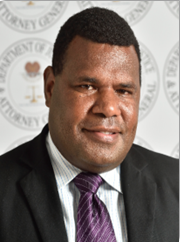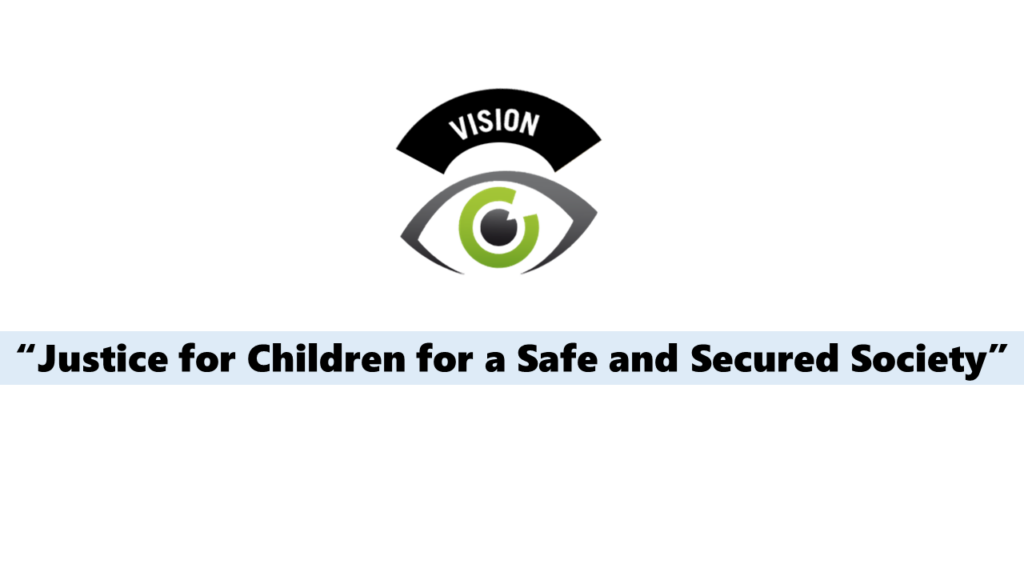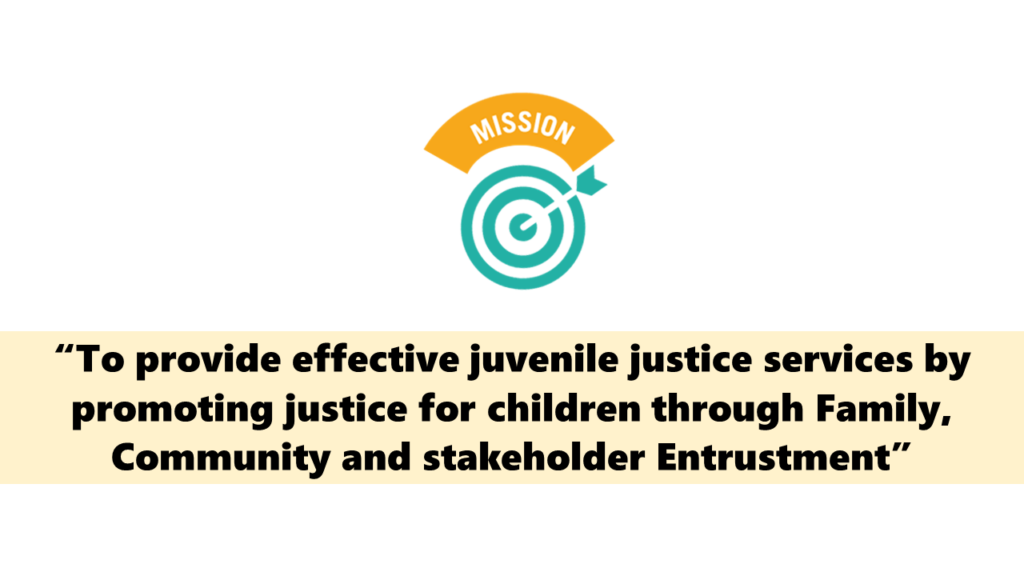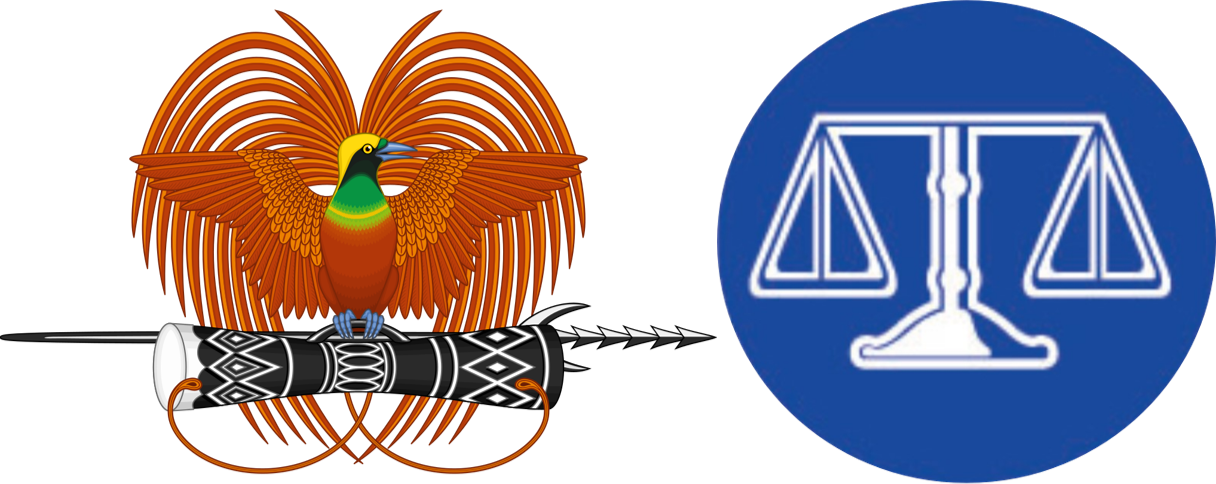
Mr. Collin Sakap is the Executive Director, Juvenile Justice Service. Mr. Sakap holds Bachelor of Arts Degree in Social Work from the University of Papua New Guinea. He was previously employed as an Assistant Director Community Engagement in the Crime Prevention Branch of the Department. Prior to joining the Department, he was an employee of the Department for Community Development for 10 years, attached to the National Office of Child and Family Services (previously known as Office of the Director of Child Welfare).
Mr. Sakap is responsible for the operation of Juvenile Justice Service, providing the leadership, direction and supervision of Juvenile Justice Officers and other officers executing the duties in pursuant to the Juvenile Justice Act 2014. He is in charge of developing and issuing of policies, procedures and guidelines applicable to juvenile institutions, accreditation of non-residential programs operated by individuals and civil society groups for the education, rehabilitation and vocational training of juveniles in the community, perform any duties or functions of a juvenile justice officer and has the mandated obligation to report on an annual basis to the Minister responsible for justice matters on the status of juvenile justice in the country. Mr. Sakap is the member of the National Child and Family Services Council under the Lukautim Pikinini Act 2015 and the ex-officio member of the National Juvenile Justice Committee.
The Juvenile Justice Service (the Service) is established under Section 7 of the Juvenile Justice Act 2014. The Service has a staff establishment of 51 staff and a total of 25 staff on strength. Juvenile Justice Service is represented in respective provincial canters by the Juvenile Justice Officers. In provinces where we do not have Juvenile Justice Officers, the Probation Officers who assumed the role of the Juvenile Justice Officer, represented both the Probation Services and Juvenile Justice Service.
The Director of Juvenile Justice Service appoints the Volunteer Juvenile Justice Officers as pursuant to Section 13 of the Juvenile Justice Act 2014. Based on their appointment, they may carry out all or any of the functions, duties or responsibilities of a Juvenile Justice Officer as determine by the Director.
The Service administers the implementation of the Juvenile Justice Act 2014 and the Juvenile Rehabilitation and Reintegration Policy 2021-2031. The National Juvenile Justice Plan 2018-2022 has set the pathway for the reforms in the administration of juvenile justice and one of which is the development of the Juvenile Rehabilitation and Reintegration Policy 2021-2031.


JUVENILE JUSTICE ACT
The Juvenile Justice Act 2014 (the Act) has repealed the Juvenile Courts Act 1991. Recent legislative reforms encapsulate the administrative functions of its mandated responsibilities in compliance with the PNG Constitution, Convention on the Rights of the Child (CRC), other international norms and standards, as well as the enabling Acts of Parliament.
The Juvenile Justice Act 2014 makes cross reference to the Lukautim Pikinini Act 2015 in ensuring that the rights of children in conflict with the law are protected throughout the criminal justice system and the juvenile justice system.
The Juvenile Justice Act 2014 establishes a comprehensive and separate juvenile justice system based on restorative justice, Melanesian tradition and contemporary juvenile justice practices. It emphasizes more on non-custodial sentencing then custodial sentencing giving prominence to rehabilitation processes of dealing with juvenile’s criminal behavior rather than executing punitive approach. Moreso, it advocates more on police and court diversion of juveniles who commits minor offences. Diversion of juveniles helps addresses the issue of lengthy detention of juvenile remandees and provide parental support to assist their children.
Juvenile Justice National Plan 2018-2022
The National Juvenile Justice Committee has been given the mandate to develop plans, strategies and policies in accordance with Section 25 (c) of the Juvenile Justice Act 2014. It has developed the Juvenile Justice National Plan 2018-2022 (the Plan) that stipulates the role of agencies and stakeholders represented in the committee to advance the work of juvenile justice in the country. The Plan outlines the responsibilities of respective stakeholders in the law and justice and social sector in accordance with the respective key domain areas of the Plan on (1) service delivery, (2) capability building, (3) institutional strengthening, (4) governance, (5) law, regulation and policy and (6) awareness.
The Plan accentuate further on (1) facilitation the coordination and cooperation amongst juvenile justice responsibilities both in government and non-government organization, (2) assist with the work of the National Juvenile Justice Committee in facilitating the administration of the Juvenile Justice Act 2014, especially the attainment of Section 5 objectives, with reference to other applicable legislations, policies, standards and international requirements and (3) encourage institutional independence and sustainability of respective juvenile justice responsibilities, through work plans, internal protocols or the adoption of administrative measures or activities essential for the juvenile justice system.
The Plan aligns to the Sector Strategic Framework, Medium Term Development Plan, Vision 2050, and National Goals & Directive Principles.
The National Juvenile Justice Plan 2018-2022 has been reviewed in 2023. It paves the way forward for the development of the strategy to implement the Juvenile Rehabilitation and Reintegration Policy 2021-2031.
Juvenile Rehabilitation and Reintegration Policy
The Juvenile Rehabilitation and Reintegration Policy (the Policy) provides a framework that will enable the institutionalization of structured rehabilitation and reintegration programs for juveniles on custodial and non-custodial sentencing in Papua New Guinea. The Policy also enhances the administrative and implementation aspects of delivering juvenile justice services pertaining to the Juvenile Justice Act 2014 and other related legislations.

- Improved rehabilitation and reintegration programs for juveniles.
- Operations of Juvenile Institutions improved.
- Improved Juvenile Case Management System.
- Stakeholders’ engagement and collaboration is strengthened and improved.
- Increased in juvenile diversion and non-custodial measures and reduction of juveniles deprived of their liberty.
- Rights of children are protected in the juvenile justice system.
- Data, Statistics and Research in juvenile justice system improved.
Functions of the Director
The functions of the Director of Juvenile Justice Service are clearly stipulated under Section 9 of the Juvenile Justice Act 2014. The Director:
- Is responsible for the operation of the Service.
- Direct and supervise the work of juvenile justice officers and other officers of the Service.
- Assign juvenile justice officers and other officers of the Service to serve in such areas and for such cases as the Director determines.
- Develop policies and procedures for the work of juvenile justice officers and other officers of the Service.
- Issue guidelines relating to the minimum standards for juvenile institutions and juveniles in detention.
- Accredit non-residential programs operated by individuals or civil society groups for the education, rehabilitation and vocational training of juveniles in the community
- May exercise any powers, or perform any duties or functions, of a juvenile justice officer
- As such other functions, powers, duties and responsibilities as are prescribed by or under this Act or any other law
Functions of the Juvenile Justice Officers
The roles and functions of the Juvenile Justice Officers are stipulated in Section 10 of the Juvenile Justice Act 2014. Their main roles and functions are to:
- Provide juveniles with support, counseling and basic information about their rights at all stages of the juvenile justice system.
- Conduct timely assessments of a juvenile’s background and circumstances, and provide advice and recommendations to the police and courts with respect to any decision made regarding diversion, bail, and sentencing of a juvenile.
- Promote the development of diversion and community-based sentencing options for juveniles by enlisting support from provincial governments and local-level governments, civil society groups, churches and members of the community.
- Maintain lists of authorized facilitators, and of civil society groups or individuals providing programs, supervision and mentoring for diversion and community-based sentencing options.
- Prepare and submit such reports and records as a Court or the Director requires.
- Establish and maintain an adequate system of confidential records.
- Perform such other functions, duties or responsibilities as the Director may require or as are prescribed by or under this Act or any other law.
National Juvenile Justice Committee
The National Juvenile Justice Committee is a governance committee comprises of relevant government agencies, civil society organization and faith-based organizations. This committee is established under Section 23 of the Juvenile Justice Act 2014. The following are the membership representations in the Committee:
- National Judiciary Services
- Magisterial Services
- Department of Justice and Attorney General (Legal Policy and Governance Branch)
- Department of Justice & Attorney General (Probation Services)
- National office of Child and Family Services
- Department of Health
- Department of Education
- Constitutional Law Reform Commission
- Royal Papua New Guinea Constabulary (Community Policing Directorate)
- Department of Prime Minister and National Executive Council
- Correction Service
- Office of Public Solicitor
- National Youth Commission
- Young Women Christian Association
- National Scouts Association
The following are the functions of the National Juvenile Justice Committee:
- To oversee and monitor the implementation of the Juvenile Justice Act 2014.
- To promote cooperation between all government departments and agencies and other organizations, agencies and civil society groups involved in implementing the juvenile justice system.
- To periodically develop national plans for the implementation of juvenile justice initiatives and for juvenile crime prevention.
- To share information, review progress and coordinate implementation of juvenile justice initiatives.
- To promote training and specialization for the personnel of agencies and organizations involves in the administration of the juvenile justice system.
- Such other functions as are prescribed.
Provincial Juvenile Justice Committee
The formation of the Provincial Juvenile Justice Committee as pursuant to Section 26 of the Juvenile Justice Act 2014 rest with the Director to consult with the respective Provincial Administration. Consultations have been carried out since 2018 with subsequent establishment of the Provincial Juvenile Justice Committees. The role and function of these committees are to oversee and monitor the implementation of the Juvenile Justice Act 2014 and the Rehabilitation and Reintegration Policy 2021-2031. There are total of 14 Provincial Juvenile Justice Committee established with their Three-Year Work Plans being developed. These plans are aligned to the National Juvenile Justice Plan 2018-2022 and the Juvenile Rehabilitation and Reintegration Policy 2021-2031.
The respective Provincial Administrations were consulted on the establishment of the Provincial Juvenile Justice Committees as well as to advocate on the sustainability of these committees. It has been anticipated that the Three Year Workplans of the respective committees be integrated into the Provincial Development Plans as a component under the Provincial Law and Justice Sector programs.
Juvenile Justice System
The Juvenile Justice Act 2014, provides for the recognition of the Juvenile Justice System. It is a system that deals with the rehabilitation and reintegration of children who comes into conflict with the law. It is distinct from the adult criminal justice systems and process where punitive measures are applied. Juvenile Justice System promotes sentencing of juveniles as a last resort. Application of diversion only applies to juvenile offenders who commit minor offences and not applicable to adult who commit offences. The system encourages more collaborative efforts amongst stakeholder agencies to provide rehabilitation programs and services to children in conflict with the law. The principles of restorative Justice, Melanesian tradition and contemporary juvenile justice practices are promoted to restore peace amongst the parties that affected by crimes committed by the juveniles.
The juvenile justice system is considered to be comprised of the following institutions and personnel:
Juvenile Justice Service
Director Juvenile Justice Service
Juvenile Justice Officers
Volunteer Juvenile Justice Officers
Juvenile Police Officers
Juvenile Courts
Juvenile Court Clerks
Authorized facilitators of Community Based Conferencing
National Juvenile Justice Committee
Provincial Juvenile Justice Committees
Village Courts
Juvenile Justice (Rehabilitation and Remand Centre’s, Juvenile Wing of Correctional Service
Police Juvenile Reception Centre
Probation Officers
Civil Society Organizations and others
Juvenile Institutions
The juvenile institutions are the integral part of the juvenile justice system and the criminal justice system. Children in conflict with the law are detained in these institutions separate from the confinement of adult inmates. These institutions are established as pursuant to Section 95 of the Juvenile Justice Act 2014. Remand centers are temporary holding place for children in conflict with the law to be detained awaiting their pre-trial hearing. The rehabilitation institutions are specifically designed to detain juveniles convicted of the crimes they have committed. Their incarceration is mainly focused on rehabilitating their offensive behaviour through anger management programs, rehabilitation on substance and drug abuse, life skills training program, psychosocial support, psychiatric services, education, health to ensure juveniles are rehabilitated for reintegration to society.
There are total of six (6) juvenile institutions in the country that comes under the jurisdiction of the Juvenile Justice Act 2014. Five of the institutions are owned by the Church organizations, the Catholic Church organization, and the Anglican Church. State owns one remand center. The juvenile wing of the Correction Service Institutions and the Juvenile Police Lock Up/Cell rests under the administrative capabilities of the Correction Service and the Royal Papua New Guinea Constabulary respectively.
The following are the juvenile institutions/center in the country:
- Erap Boys Town-Lae, Morobe Province
- Wewak Boys Town-Wewak, East Sepik Province
- Mabiri Juvenile Rehabilitation Centre- Autonomous Region of Bougainville
- Hohola Remand Centre-National Capital District
- Hetune (Female) Rehabilitation Centre-Northern Province
- Jagarata (Male) Rehabilitation Centre-Northern Province.
Partnership
DJAG through Juvenile Justice Service has forged the partnership with external stakeholders. The partnerships are for the management of the juvenile rehabilitation institutions/centres and for the engagement of the Volunteer Juvenile Justice Officer. The following partnerships have been established:
- Service Agreement
A Service Agreement has been signed between DJAG and the Sacred Heart Brothers of the Congregation of Catholic Church. This was signed in 2021 for the management and operation of the Erap Boys Town in Morobe Province.
The Service Agreement is to ensure that the State provides resources through annual budgetary appropriation to enhance the rehabilitation programs and services for juveniles convicted by the National Court of justice to access. The Sacred Heart Brothers are to provide appropriate rehabilitation programs and services to rehabilitated the juveniles.
- Memorandum of Understanding
The Memorandum of Understanding between the Autonomous Administration of Bougainville, Department of Justice and Attorney General and the Nazarene Rehabilitation Centre was signed to support the operations and management of the Mabiri Juvenile Rehabilitation Centre in the Autonomous Region of Bougainville. The MoU clearly outlines the roles of the respective stakeholders in the area of cooperation.
DJAG signed the MoU with the New Britain New Ireland Mission of Seventh Day Adventist Church and Salvation Army Territory of Papua New Guinea and Solomon Islands. This MoU provides for the engagement of the Volunteer Juvenile Justice Officers and the cooperation between the parties to advance the services of juvenile justice at the sub-national level. This partnership strengthened the referral pathways for children in conflict with the law who can be properly supervised and rehabilitated. The MoU further extend the services of the volunteers to engaged in community outreach programs regarding awareness counselling services for the juveniles and on capacity building training program.
Funding Sources
Our programs are supported by the funding from the National Government as per the annual budget appropriation. The development partners such as United Nation Children’s Emergency Funds (UNICEF) and Justice Services and Stability for Development (JSS4D) under Australian Aid Program component provide funding to complement the national budget appropriation.
The development partners funding component has been utilized to facilitate capacity building training, support the functions of the National Juvenile Justice Committee and the Provincial Juvenile Justice Committees, development of policies, review of legislations and support conferences and meetings.
The funding from national budget helps to support our provincial operations such as purchasing of office stationaries and equipment, supporting the Provincial Juvenile Justice Committee’s meeting, operations of juvenile institutions, repatriation of juveniles and other general administrative operations. The AusAID has launched the new program called the Australia Papua New Guinea Law and Justice program that has the potential to support the delivery of juvenile justice services at the national and sub-national level.

| Location | West New Britain House Level 4, Independence Drive, Section 278, Lot 27 – Waigani |
| juvenile.justice@justice.gov.pg | |
| Phone | (+675) 301 2800 |
| Web | Justice | SLOS |








